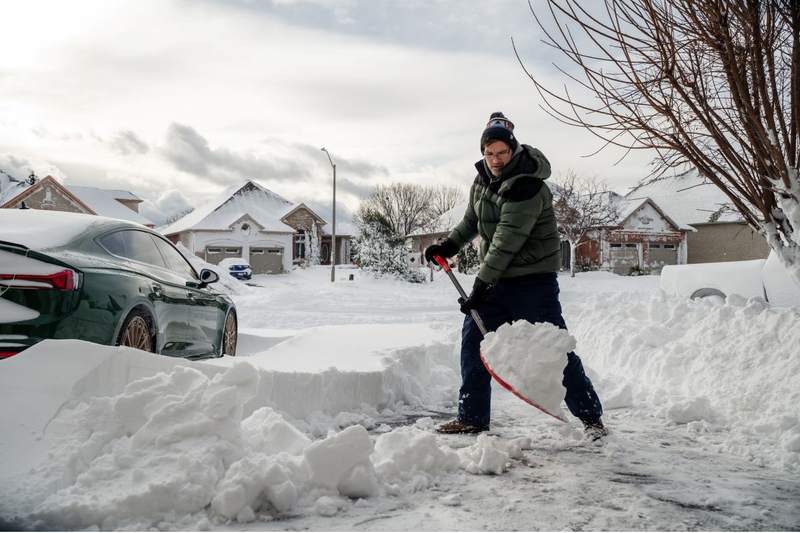No one likes thinking about death, or what happens to their property after they die. Because of this, many of us put off tasks like writing a will, thinking there will always be time to do it later.
You may think you know what’s going to happen to your worldly goods when you’re no longer here to enjoy them, but if you don’t commit your wishes to writing in a will, loved ones and friends could be shut out while your heirs sell off your property and split the proceeds.
Let’s take a look at what intestacy is, what it means and why you might want to avoid it.
What Does Intestate Mean?
“Dying intestate” means that a decedent – the person who died – did so without leaving a will. A will is a set of instructions about how you want your property to be distributed after you’re gone.
When this happens, the state takes responsibility for dividing up your assets among your descendants via a probate court. With a will, the decedent gets to make these decisions. Each state has different laws regarding how an intestate decedent’s assets are distributed.
The laws of intestate succession vary significantly depending on if you have children, are married, and what your assets are. Most of the time, your property will be distributed based on state law to your heirs, which typically include your spouse, children and grandchildren.
See What You Qualify For
Buy A Home
Discover mortgage options that fit your unique financial needs.

Refinance
Refinance your mortgage to have more money for what matters.
Tap Into Equity
Use your home’s equity and unlock cash to achieve your goals.
Why Is It Important To Avoid Dying Intestate?
A will is an expression of how you want your earthly estates to be distributed. Courts prefer to honor your final wishes, but if you die without a will (intestate), they’ll have no choice but to divvy up your assets according to the laws of the state in which you lived.
If you die without a valid will or any will, you’ll have no say over what happens to the things you leave behind. If you’re assuming that your vintage guitar will go to your lifelong best friend, know that’s unlikely to happen unless you put it in your will. Instead, a niece you barely know might be able to list it on eBay and keep the proceeds.
Or if you’re involved in a long-term committed relationship, but never married your partner, this very much matters in probate court. For simplicity, we’ll refer to unmarried partners as partners and married partners as spouses in this article.
Who Decides If You Don’t: The Probate Court
When you die, you can’t take anything with you. The stuff you leave behind ends up in probate court, where a court will preside over your estate’s liquidation in a probate sale.
In our legal system and society, property can’t go “unowned” and can’t be owned by a dead person. That means that it has to be transferred to the jurisdiction of the probate court for disposition.
If your property includes real estate or other valuable items, and you have heirs, the probate court gains control over those assets, unless the property bypasses the estate.
What Property Bypasses Probate When A Person Dies Intestate?
A wide variety of assets can bypass probate when someone dies intestate. Ownership of assets with designated beneficiaries – like trusts, life insurance and financial accounts – passes to heirs automatically when the decedent dies, bypassing probate court.
Trusts
Property that is owned by a trust passes automatically to the trust’s beneficiaries when the creator of the trust dies or becomes incapacitated. With a living trust, the grantor, or property owner, retains control of all of the conditions of the trust during their lifetime. Other types of trusts – called irrevocable trusts – require a property owner to give up control of the terms of the trust once ownership is transferred to the trust.
Life Estates
A life tenant also retains full control of the property under the terms of a life estate, with one exception: they can’t sell the property without the consent of the heirs who will inherit the property as a matter of law when the life tenant dies.
Joint Tenancy With Right Of Survivorship
Some property belonging to the deceased can avoid probate court, even if the person died intestate. For example, if the deceased owned a house with a partner that was not a spouse, but it was owned by both parties, the surviving partner would own the house upon the person’s death.
Assets With Designated Beneficiaries
Additionally, if there are assets with named beneficiaries, those assets will go directly to them rather than through probate court. One important example of this are the proceeds from a life insurance policy.
Most financial accounts require an investor or saver to designate a beneficiary when the account is opened. Those assets pass to the beneficiary as a matter of law upon the account holder’s death, bypassing probate court.
What Is Intestate Succession?
Intestate succession is the set of default laws dictating who receives what of a deceased person’s assets. Each state defines intestate heirs by their relationship to the deceased.
In general, the decedent’s spouse – whether together or estranged – automatically inherits the estate, followed by the decedent’s children. Typically, someone further down the line such as grandchildren will not inherit anything if the successors ahead of them are still living.
Many states automatically allow the surviving spouse to remain in the marital home – either as owner or life tenant – and at least half of any other estate assets, even if they were estranged from the decedent.
After a spouse and children, the parents and siblings are typically next in line. Parents and siblings typically do not receive a share of the deceased’s estate if the spouse and children are still living.
After parents and siblings, family members such as aunts, uncles, nieces, nephews, and cousins may next become eligible to receive portions of the estate. If there are no living relatives to inherit an estate, the state will receive the net cash value of the decedent’s estate through a process called escheat.
Testate Vs. Intestate: The Difference In Probate Court
If you’ve left a valid will, the court will follow it scrupulously. If you don’t, the court has no choice but to follow state law.
Testate Estates
When someone dies with a will, they will have appointed an executor, or someone who oversees the distribution of the assets, according to their wishes. The only thing the court considers, in most cases, is whether the will is valid.
Why Would A Will Be Considered Invalid?
If a will is valid, the court has no choice but to follow its provisions, even if the results seem unjust to the decedent’s loved ones.
If a will was signed:
- While the decedent was under the influence of fraud or duress
- While the decedent was in an altered state of mind for any reason
- Without following the state’s requirements regarding witnesses and notarization.
That means that it’s not enough to simply write your wishes down and leave it where it can be found after you pass. You should meet with an attorney and discuss what you’d like to accomplish with your bequest. Your attorney will make sure everything is done in accordance with the law.
Also, if the decedent left behind two or more wills, called codicils, the most recent invalidates the previous ones.
What Happens If A Will Is Invalid?
When a will is ruled invalid, the court has no choice but to distribute the estate according to intestate succession rules. If the will that is invalidated is a codicil, the original will be restored.
Intestate Estates
When someone dies intestate, the probate court appoints an administrator to execute their estate according to state law.
The administrator must follow the state’s prescribed process. They compile a list of the person��’s assets. They will then pay any outstanding debts and contribute the remainder to the deceased’s beneficiaries. These beneficiaries will differ depending on state law, so it’s important to investigate your state’s intestate law if you have specific questions.
The assigned administrator will track down any relatives of the deceased and designate their inheritance regardless of their existing relationship with the deceased. This means that, if someone dies and does not have a spouse but has two children, one of whom is estranged, the children will still both receive 50% of the estate.
Who Can I Leave My Estate To If I Have No Heirs?
Many people feel like if there isn’t anyone who depends on them financially, there’s no reason to bother with estate planning. But that doesn’t mean you couldn’t do good for someone or something meaningful to you.
Friends, Companions and Other Loved Ones
When an administrator divides up an intestate person’s assets, they do not consider the deceased’s non-familial relationships. Even if these people were mentioned in an invalid will, they will not be taken into consideration because the will is declared invalid.
There are a few repercussions that should be noted here. First, if the deceased is unmarried but living with a partner, that partner will have no claim to the inheritance. Therefore, if a person wishes to provide for their partner postmortem, they must have a valid will in place.
Additionally, some people choose to include friends or caretakers, or even make provisions for the care of their pets in their wills. If someone wants to provide for loved ones who are not legally part of the family, they will need to include them in a will that is drawn up by a competent attorney so that those companions are not left out.
Causes Or Activities
If you’re particularly interested in a cause, have benefited from attending a church or school or have been a long-time fan of a particular activity, there’s likely an organization that could benefit from inheriting your estate.
Many people will leave portions of their estate to a charity or cause that they care about. Like close friends or loved ones being excluded from a person’s estate unless stated in a valid will, charities will also not receive any payment if the person’s estate is allocated by a probate court.
Special State Law Rules Affecting Intestacy
Every state’s laws have their peculiarities, but homeowners in these states should take particular care not to run afoul of these more limited property law concepts.
Community Property States
Community property states consider everything spouses acquire during their marriage to be owned jointly. Exceptions to this rule are gifts given specifically to a spouse or assets they inherited are not considered community property.
The purpose of community property is to protect a spouse and their rights. It typically includes all money earned, debts and property acquired between them. For example, if a person owned a house before getting married, it is not considered community property. However, if a couple purchased a home together, it is considered community property.
In community property states, your spouse will inherit all your community property if you die, plus some of your personal property, even if you have children. Your spouse’s portion of the separate property depends on if you have living parents, children or siblings.
Dower Rights States
You should also be aware of dower rights. Dower rights ensure that a surviving spouse inherits at least a third of their decedent spouse’s estate, regardless of the will’s provisions and it’s an exception to the general rule that a valid will trumps state law estate rules that we described earlier.
Intestate FAQs
There are plenty of questions that arise when someone dies intestate. Let’s take a look at common questions and situations that anyone dealing with an intestate decedent’s estate might encounter.
You should consider contacting an estate planning professional or an estate lawyer to get answers to questions you have about your situation and your state’s laws.
Why would a court declare a will invalid?
If a will was signed while under the influence of fraud, duress or while the decedent was in an altered state of mind for any reason, or without following their state’s requirements regarding witnesses and notarization, a will might be deemed invalid. When this happens, the probate court will generally treat the decedent as an intestate, or revert to an earlier will.
Do life insurance proceeds pass through probate?
No, they do not, because all life insurance policies specify a beneficiary. As long as there are no complications – say, for example, the beneficiary died before or at the same time as a decedent – and the death certificate isn’t delayed, a beneficiary can receive life insurance proceeds.
What are the community property states?
There are nine community property states: Arizona, California, Idaho, Louisiana, Nevada, New Mexico, Texas, Washington and Wisconsin.
The Bottom Line: Dying Intestate Means You Lose Your Say Over Your Property
When you die without making plans for your assets, the probate court will do it for you.
It’s vital to have a will if you want your assets to go to your family, friends or causes you care about after you die. Even if you don’t have a lot of assets, you can save your family a lot of time and headache by specifying your wishes in a valid will.
Please contact a licensed attorney in your area to discuss your specific situation. Learn more about what real estate lawyers can do for you when you’re buying a house.
Ready to refinance?
See recommended refinance options and customize them to fit your budget.

Victoria Araj
Victoria Araj is a Staff Writer for Rocket Companies who has held roles in mortgage banking, public relations and more in her 15-plus years of experience. She has a bachelor’s degree in journalism with an emphasis in political science from Michigan State University, and a master’s degree in public administration from the University of Michigan.












